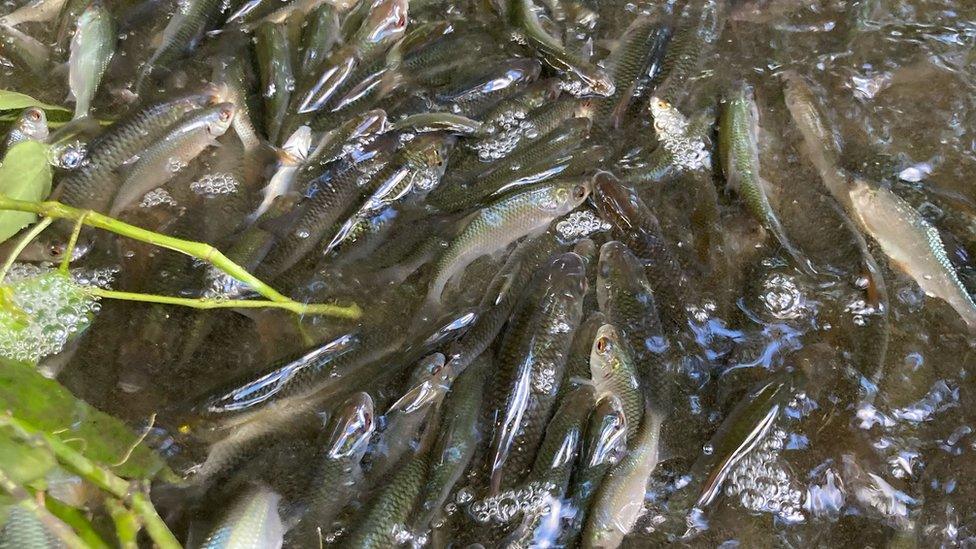Thousands of Broads fish saved after seawater surge
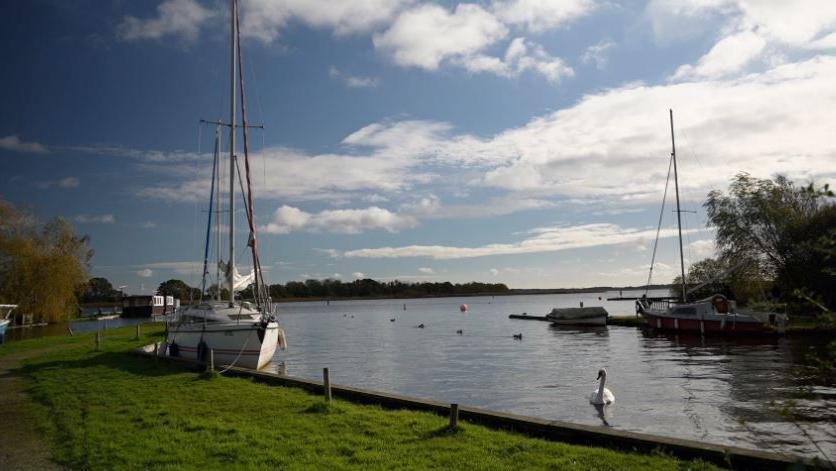
Fish have been dying in Hickling Broad after saltwater infiltrated part of the Broads following a storm surge
- Published
The Environment Agency (EA) said it has saved about 100,000 freshwater fish after seawater infiltrated a waterway following a storm surge last month.
Salt levels in the Broads were found to be dangerously high miles inland, particularly near Ludham, Norfolk.
The seawater was pushed into the Broads through a combination of high tides and wind conditions. As a result, dead fish rose to the surface after becoming dehydrated.
Rory Sanderson, from the EA, said: "It's always unsettling and upsetting when fish die – it's a big event but a natural event, I should stress that."
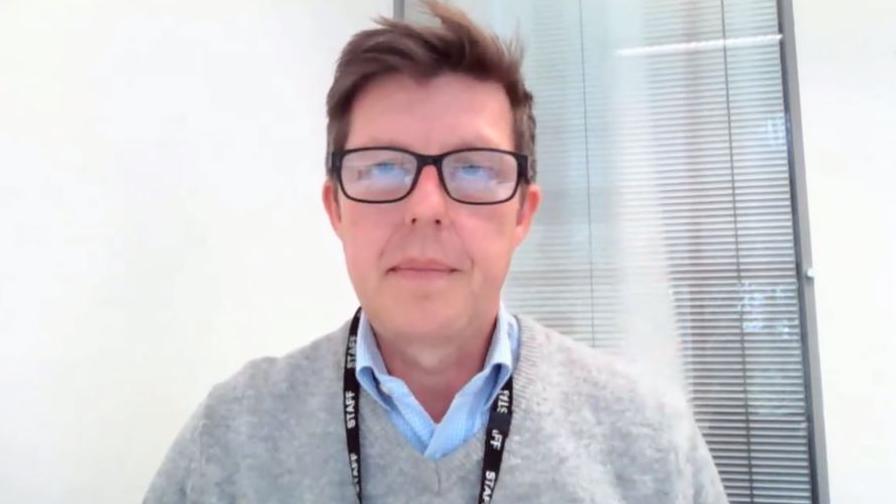
Rory Sanderson said the incident had been a "big event" for the area
The agency's environment manager for Norfolk told BBC Look East: "If we say 'disaster averted', it would be over-egging it.
"It was a big event, but we were fortunate it didn't come up any further."
Mr Sanderson said fish had swum upstream to Womack Staithe, near Ludham – a point 23 miles (37km) inland from the sea – where the salt levels were perilously high.
This blind end of the waterway was aerated before fish were removed with nets, placed in aerated freshwater tanks and removed to Hickling Broad, where they were able to better tolerate the salt in the water.
"We only do that as a last resort... unfortunately, in this case we had to remove them," said Mr Sanderson.
"We saved a lot, and a lot would have survived in the Broads system that wasn't impacted."
The Environment Agency said it was thought about 2,000 fish may have died, but most of the fish population would be in main rivers at this time of year and would be moving upstream to avoid the salt water.
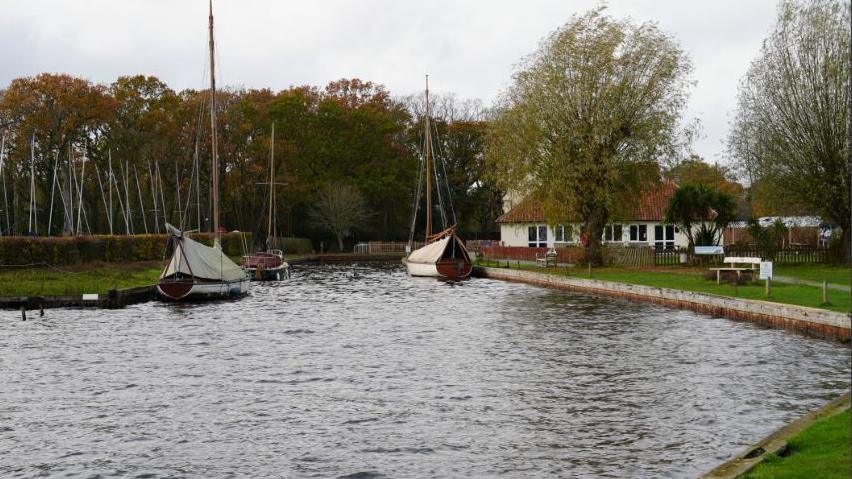
Rescued fish were removed to Hickling Broad where the salt levels were lower than at Womack Staithe
Dan Hoare, head of ecology at the Broads Authority, said at a meeting last week that the situation facing certain areas of the Broads was "unprecedented", according to the Local Democracy Reporting Service.
It has meant workers have paused planned dredging activity at Hickling to avoid further disturbing the already distressed fish.
"Salt levels at Heigham Sound and Hickling are triple what they are meant to be – levels which will affect most fish," he said.
"We have waited a month, but the salt has not gone down; it has got worse.
"This is unprecedented. In 30 years looking at water quality in these areas, salt has not stayed up this long."
Big bream, pike and other species have risen to the surface after dying through dehydration.
The Environment Agency said two consecutive high tides helped push saltwater from the North Sea quicker and further up the rivers than normal, with gusts of north-westerly winds assisting the process.
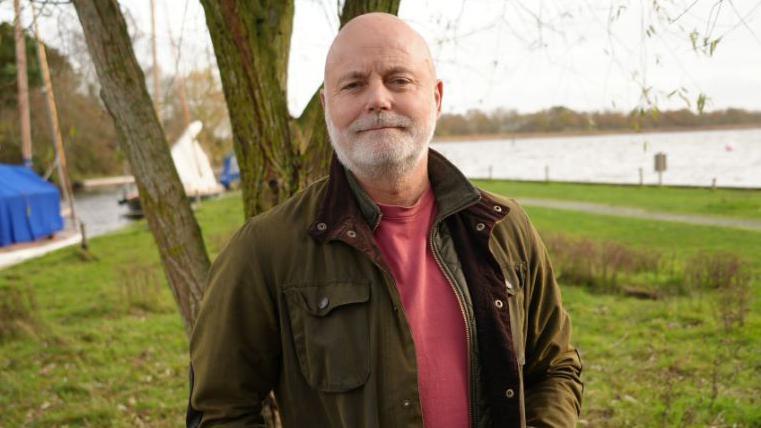
John Currie, chairman of an angling club, said the situation of rising salt levels in the Broads was worsening
John Currie, chairman of Norwich and District Pike Club, has been monitoring water levels in the Broads for 15 years.
"If action isn't taken, this will be a saltwater estuary," he said.
"It's happening every year, and it's getting worse.
"If we accept that, a lot of people are going to be going out of business, a lot of people are going to lose their jobs, and a whole ecosystem will be changed completely.
"It's a disaster, and no-one is doing anything about it."
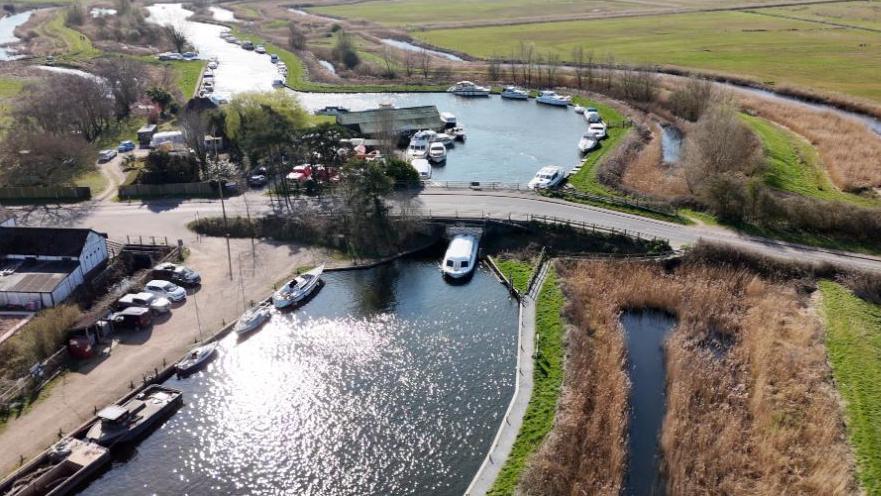
Ludham Bridge straddles the River Ant, which has been affected by the incident
In a statement, the Broads Authority said: "There are no easy answers to the unprecedented recent and sustained high levels of salinity affecting the Broads waterways."
It added it would continue to support the Environment Agency, which was leading the response.
The agency has urged anyone who spots any concerns on the Broads or rivers to call its 24-hour hotline on 0800 807060.
'Nearly pure sea water’ problems for the Broads
Get in touch
Do you have a story suggestion for Norfolk?
Follow Norfolk news on BBC Sounds, Facebook, external, Instagram, external and X, external.
Related topics
More like this story
- Published4 days ago
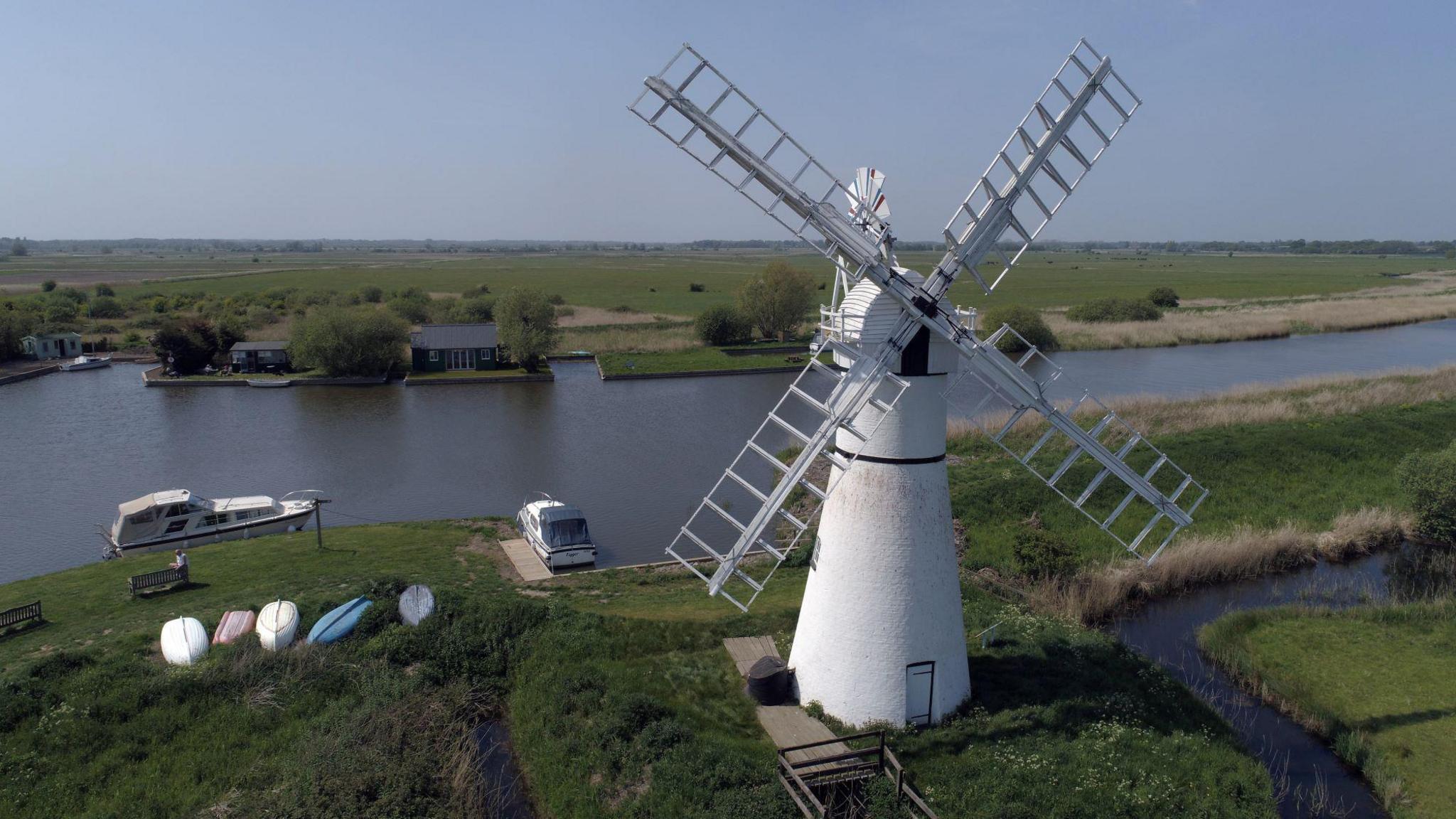
- Published23 September 2022
